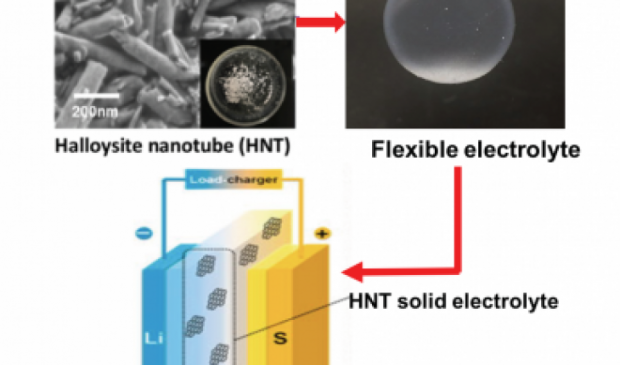
Breaking News
6.5x55 Swedish vs. 6.5 Creedmoor: The New 6.5mm Hotness
Best 7mm PRC Ammo: Hunting and Long-Distance Target Shooting
 Christmas Truce of 1914, World War I - For Sharing, For Peace
Christmas Truce of 1914, World War I - For Sharing, For Peace
Top Tech News
 EngineAI T800: Born to Disrupt! #EngineAI #robotics #newtechnology #newproduct
EngineAI T800: Born to Disrupt! #EngineAI #robotics #newtechnology #newproduct
 This Silicon Anode Breakthrough Could Mark A Turning Point For EV Batteries [Update]
This Silicon Anode Breakthrough Could Mark A Turning Point For EV Batteries [Update]
 Travel gadget promises to dry and iron your clothes – totally hands-free
Travel gadget promises to dry and iron your clothes – totally hands-free
 Perfect Aircrete, Kitchen Ingredients.
Perfect Aircrete, Kitchen Ingredients.
 Futuristic pixel-raising display lets you feel what's onscreen
Futuristic pixel-raising display lets you feel what's onscreen
 Cutting-Edge Facility Generates Pure Water and Hydrogen Fuel from Seawater for Mere Pennies
Cutting-Edge Facility Generates Pure Water and Hydrogen Fuel from Seawater for Mere Pennies
 This tiny dev board is packed with features for ambitious makers
This tiny dev board is packed with features for ambitious makers
 Scientists Discover Gel to Regrow Tooth Enamel
Scientists Discover Gel to Regrow Tooth Enamel
 Vitamin C and Dandelion Root Killing Cancer Cells -- as Former CDC Director Calls for COVID-19...
Vitamin C and Dandelion Root Killing Cancer Cells -- as Former CDC Director Calls for COVID-19...
 Galactic Brain: US firm plans space-based data centers, power grid to challenge China
Galactic Brain: US firm plans space-based data centers, power grid to challenge China
Progressing to Solid-State Lithium Batteries

Commercial lithium batteries were first introduced in 1991 by the Sony Corporation and are used in a wide range of portable electronic, medical and military devices as well as hybrid and electric vehicles. These lithium batteries can provide multiple usages and have had satisfactory performance; however, liquid electrolytes have, in some instances, demonstrated solvent leakage and flammability.
The Miller group has developed a new nanocomposite material for advanced solid polymer electrolyte and electrode design and fabrication of cathodes for lithium batteries that improves safety, increases energy density and reduces complexity and cost of manufacturing compared to conventional liquid or gel electrolytes currently in use.
A key component of the new electrolyte is halloysite, a super-fine aluminosilicate mineral and natural nanotube material that is a unique Utah resource available from Applied Minerals. The halloysite nanocomposite solid-state electrolyte is a thin, almost transparent membrane that will make possible the use of high energy all solid-state lithium batteries over a wide range of temperatures.

 The State's Last Stand
The State's Last Stand


